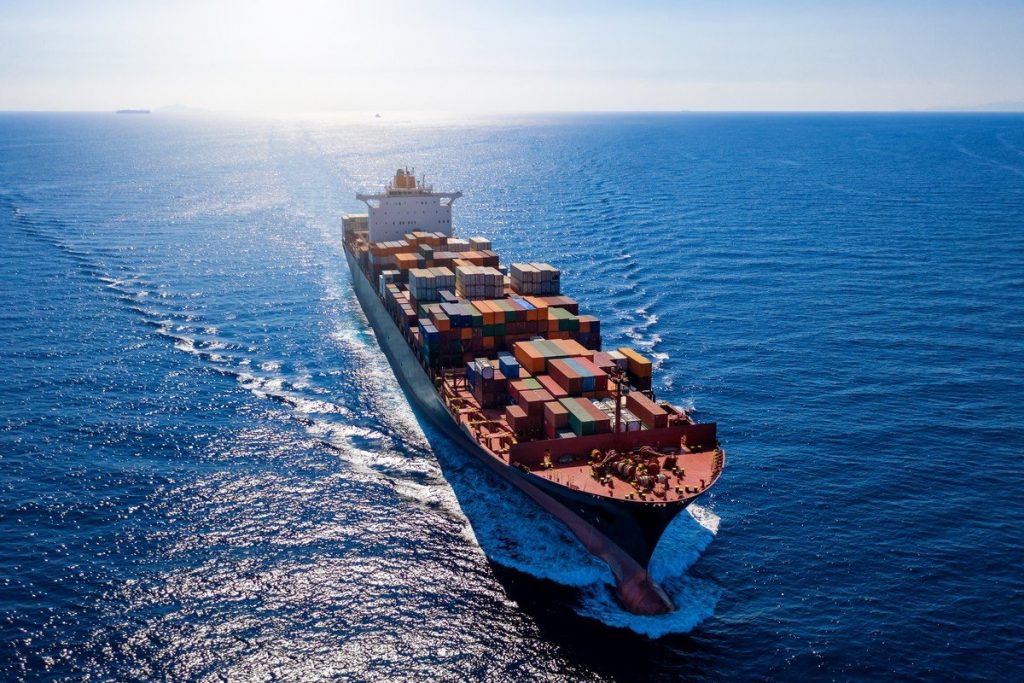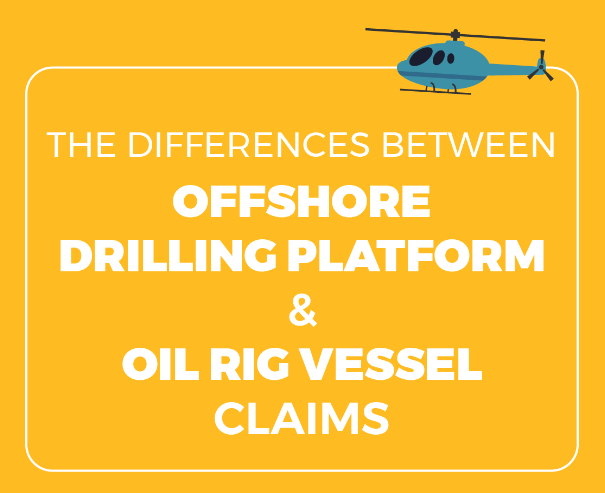When cargo is lost or damaged at sea, the costs to distributors and retailers go beyond the value of the goods themselves. Filing a missing cargo claim or insurance claim might recover the cost of the goods, but the laws that apply to international shipments by ship are complex and varied. Determining that laws apply to your lost or damaged shipment might require the expertise of an experienced team of maritime lawyers.
Some companies consider cargo loss a cost of doing business overseas but may not recognize the cascading cost of supply chain disruption. Some loss in transit may be inevitable but, when the carrier is at fault, a lawsuit may be a cost-effective option in recovering some of the millions of dollars in cargo damage that American businesses experience each year.1
What Is Cargo Damage?
There are four main categories of cargo damage that commonly occur in overseas shipping:
- General damage. The freight is visibly damaged when delivered.
- Loss. The shipment does not arrive, or packages or boxes that are listed on the bill of lading are missing from the shipment.
- Shortage. Some of the items in the shipment arrive undamaged, but the count is less than the picklist indicates were shipped.
- Concealed damage. Shipping damage that was not visible on initial inspection was discovered later and was not reported until after the delivery was accepted.
How Often Is Cargo Damaged or Lost in Shipping?
Industry surveys and data suggest that as many as 11% of shipments arrive at the destination with some level of damage.2 International shipping records indicate that, each year, an average of 1,582 shipping containers are lost during transit, and 568 of these are not caused by “catastrophic events” at sea.3
Each of these lost containers may represent a significant business investment and cause resulting production delays, cost overruns, and damage to customer relationships. Shipping by oceangoing vessel may be more likely to cause damage to cargo, due to the additional handling steps; the potential for water damage; and the vibration, load shifts, and heavier equipment which are factors on board.
Managing Lost or Damaged Shipments
How can your business most effectively handle damaged cargo or lost freight? Following these best practices will help preserve your rights as the consignee or receiver of cargo:
- Inspect deliveries as they are unloaded; unloading should be stopped if visible damage is found.
- Document any damage with photos and videos, as well as written detailed descriptions of what was found.
- Notify the shipper, the carrier, and your insurance company to allow them to conduct their own investigation or inspection.
- Keep the damaged goods until there is resolution, and protect the shipment from further damage.
- Do not sign a delivery receipt, even with notes such as “subject to inspection and count” for damaged goods, shortages, or lost items.
- Pay the freight charges without delay to protect your rights to file a cargo damage claim.
- File a lost or damaged freight claim as soon as possible, especially in cases of concealed damage. You may only have days to do so, depending on which international or maritime law applies to your shipment.
- Save all receipts and documentation surrounding the shipment, and costs you or your business incurred as a result, to support your claim and share with your maritime lawyers if necessary.
What Options Do You Have if Your Cargo Was Damaged or Lost at Sea?
Which route you take to recover your losses when your shipment is lost or damaged in transit will depend on the value of the cargo and the specifics of the situation. In general, you have these options:

- You may file an insurance claim, especially if the shipment was lost due to an “act of God” or “justifiable deviation” rather than negligence.
- You may file a lawsuit against the seller if the goods are defective or were damaged when packaged.
- You may file a claim or lawsuit against the shipper if the cargo was not properly packaged and was damaged or lost as a result.
- You may sue the carrier if the shipment was improperly loaded, unloaded, or handled during transport.
- Additionally, your insurance company might file a lawsuit against the other parties after paying your claim, or a shipowner might file suit against a charter that breached its contract and caused your cargo damage or loss.
Which Laws Apply to Lost or Damaged Cargo?
Most shipments under U.S. law are governed by the Carmack Amendment, which outlines liability for carriers and shippers regarding damage to shipments.4 This law requires only that the recipient establishes the cargo was picked up in good condition, and was then delivered damaged, and specifies the value of the loss sustained. In most cases, the liability of the carrier is limited to the replacement value of the goods.
Cargo that is shipped by sea from or to the United States is usually governed by the Carriage of Goods by Sea Act, or COGSA.5 COGSA is based on the Hague Visby Rules, which reflect international treaties regarding overseas shipping.6 Which rules apply to your specific shipment will typically be outlined on your bill of lading.
How Does COGSA Differ from the Carmack Amendment?
Your rights as the consignee (recipient) of an overseas shipment may be quite different than those of land-based shipments. Under the Carriage of Goods by Sea Act:5
- Cargo carriers by ocean vessel have 17 defenses against liability but must show that negligence was not a factor in the cargo damage or loss.
- The time to file a claim under COGSA is three days following delivery, in contrast to nine months under Carmack. The time maritime attorneys have to file a lawsuit under COGSA is one year from the delivery date.
- The shipment is covered by COGSA until it reaches its final destination, even if the last leg of travel is by rail or truck.
- Liability limits under COGSA are often capped at $500 per package or shipping unit—if no negligence occurred during shipment—unless a greater value is declared for the unit(s) prior to shipment.
The Duties of an Oceangoing Carrier Under Maritime Law
To be protected under the liability limits of COGSA, the carrier must:
- Provide a bill of lading, that is a contract for the shipment and carriage. The back of this document will outline damage limits and identify the law that controls the particular shipment, whether it is COGSA, Hague Rules, Hamburg Rules, or Hague-Visby.
- Practice due diligence to provide a seaworthy ship, provide proper equipment and crew to operate the vessel, secure the goods in an area that will preserve the cargo, and deliver the goods safely, subject to certain liability protections.
- Respond to a written notice of loss that is submitted within the required time limits. If no written notice of loss is received, the carrier is considered to have delivered the goods in satisfactory condition and completed the contract.
Situations in Which a Sea Carrier Is Protected from Liability
The 17 defenses against liability that are provided to ocean cargo carriers under COGSA contain some items of note, namely:

- The carrier or shipowner is not liable for “neglect or default” of the crew, pilot, or captain.
- The carrier is not liable for damage by fire unless it was caused by negligence or unseaworthiness.
- The carrier is not responsible for damage or loss caused by unforeseeable “perils of the sea,” acts of God, or justified deviations, which are actions taken to protect human life or the safety of the ship and crew.
- The shipowner or carrier is also not responsible for damage, delay, or loss caused by public enemies, cargo seizure as part of legal action, civil unrest, quarantine, and some other known risks of international shipment.
Filing a Lawsuit for Cargo Loss or Damage at Sea
While there are many protections for ocean carriers that help keep the industry afloat, a shipowner or carrier who does not meet the basic duties outlined may well be liable for loss or damage to cargo. Lawsuits for cargo damage and loss are regularly filed to recover the value of shipments and legal costs where negligence was a factor.
These cases are usually heard in federal courts with appropriate admiralty jurisdiction under maritime law. Some might be tried in state courts where the law allows. In either case, the international treaties and laws will apply, and you may need representation from experienced maritime lawyers to navigate these complex waters.
If you have sustained a significant loss because of cargo damaged or lost at sea, scheduling a free consultation with a maritime lawyer can guide your decision about pursuing a lawsuit against the carrier. With more than 100 years of combined experience in international maritime and admiralty law, the team at Schechter, Shaffer & Harris—Maintenance and Cure—can chart a course forward to recover the damages to which you are entitled. Call or contact us today to take the right legal action to meet your own obligations and business goals.
Sources:
- https://www.connerindustries.com/whats-the-real-cost-of-in-transit-damage/
- https://www.packagingdigest.com/trends-issues/mitigating-packaging-damage-supply-chain-0
- http://www.worldshipping.org/industry-issues/safety/Containers_Lost_at_Sea_-_2017_Update_FINAL_July_10.pdf
- https://www.law.cornell.edu/uscode/text/49/14706
- https://www.legislation.gov.uk/ukpga/1971/19/section/1
- https://digitalcommons.du.edu/cgi/viewcontent.cgi?article=1366&context=tlj







